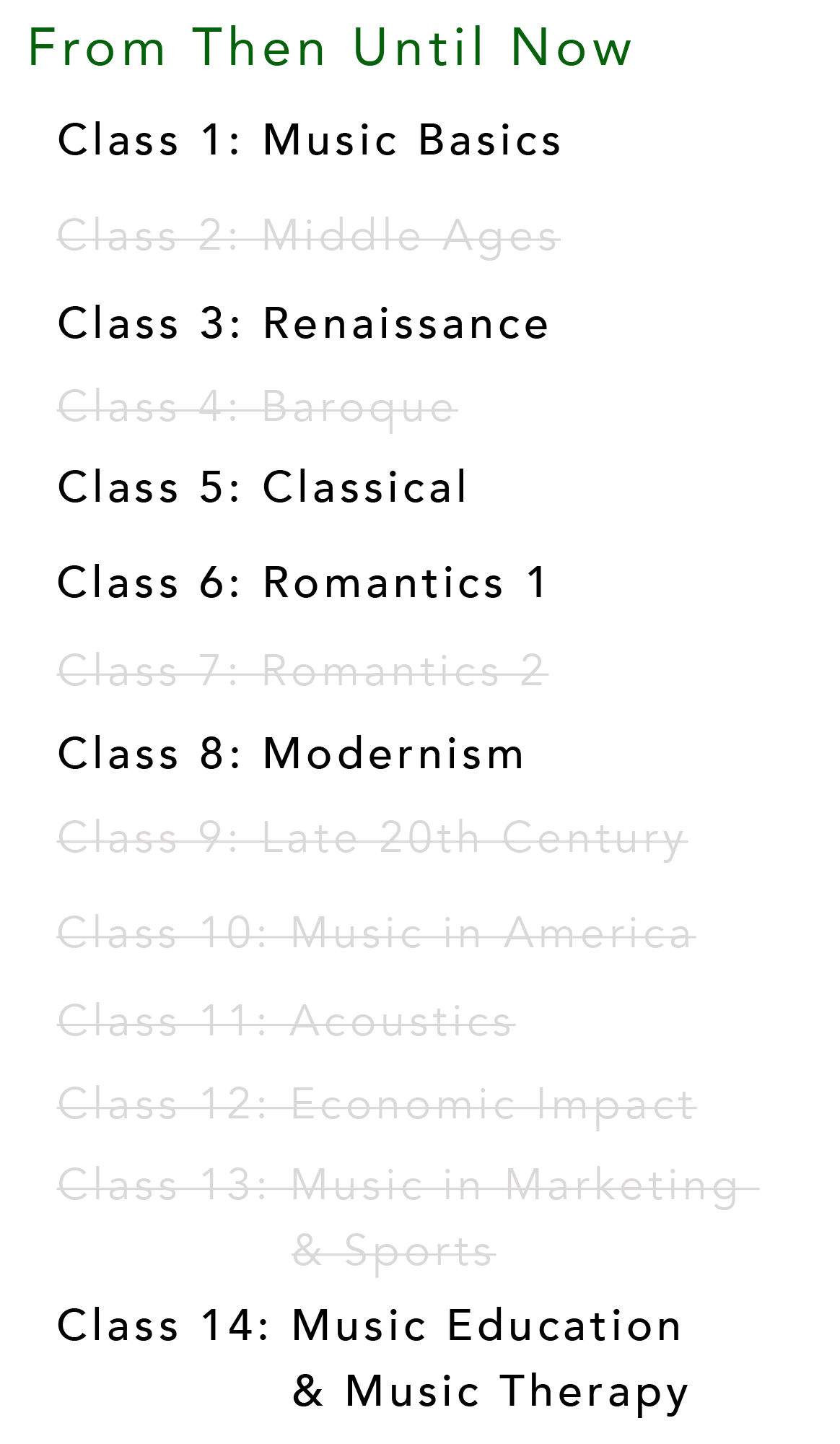Next session begins February 15th. ENROLL NOW
From Then Until Now
Music Basics
All the basic music theory you need so you can follow along with our lectures when we look through written music. Notes, rests, rhythms, clefs, and meters – it’s all there. Don’t worry, it’s really much easier than it sounds.
Renaissance (14th-16th Centuries)
Considered a “rebirth” for humanity, this era saw an explosion of advancements in all aspects of life – think Columbus, Magellan, da Vinci, and Shakespeare. The era also ushered in the beginnings of standard practices in music that are still used when writing today’s major hits, including rap and ska.
Classical (1750-1820)
While being one of the shorter periods in music, this era still saw incredible contributions to the music we hear in the concert halls. The great masters like “Papa” Haydn, Mozart, and Beethoven helped define the rules for composing that would go on to shape music for the next two centuries.
Romantics Part 1 (early 1800’s-Pre WWI)
This is when we see the orchestra grow in size and scope. Composers began telling stories through their music like never before, and humankind and music alike saw unprecedented development through various social and political revolutions.
Modernism (First half of the 20thCentury)
Art reflects life, which was evident by the effects two world wars had on people’s perspective on the world around them. Just as war would spill over man-made borders, artists began looking to expand beyond the long-held rules and limitations of their own craft.
Music Education, Participation, and Therapy
Part A: Education and Participation
Unfortunately, simply listening to classical music does not increase a child’s intelligence (i.e. “the Mozart Effect” = old wives’ tale). However, countless studies have shown that when a child participates in music, they have a better understanding of the world around them and perform much better in school and on cognitive tests. Now what parent wouldn’t want to learn more about that??
Part B: Music Therapy
We all have those particular songs we go to when we’re feeling happy, sad, angry, unmotivated, excited – or when we’re not feeling those ways but want to be. In addition to being the second most powerful memory trigger we have (smells are #1), music has proven to have amazing “healing” powers when used to address the physical, emotional, cognitive, and social needs of individuals.

